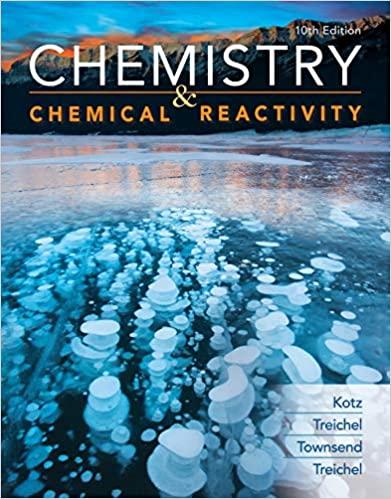Oxygen dissolved in water can cause corrosion in hot-water heating systems. To remove oxygen, hydrazine (N 2
Question:
Oxygen dissolved in water can cause corrosion in hot-water heating systems. To remove oxygen, hydrazine (N2H4) is often added. Hydrazine reacts with dissolved O2 to form water and N2.
(a) Write a balanced chemical equation for the reaction of hydrazine and oxygen. Identify the oxidizing and reducing agents in this redox reaction.
(b) Calculate Δr H°, Δr S°, and ΔrG° for this reaction involving 1 mol of N2H4 at 25°C.
(c) Because this is an exothermic reaction, energy is evolved as heat. What temperature change is expected in a heating system containing 5.5 × 104 L of water? (Assume no energy is lost to the surroundings.)
(d) The mass of a hot-water heating system is 5.5 × 104 kg. What amount of O2 (in moles) would be present in this system if it is filled with water saturated with O2? (The solubility of O2 in water at 25°C is 0.000434 g per 100 g of water.)
(e) Assume hydrazine is available as a 5.0% solution in water. What mass of this solution should be added to totally consume the dissolved O2 [described in part (d)]?
(f) Assuming the N2 escapes as a gas, calculate the volume of N2(g) (measured at 273 K and 1.00 atm) that will be produced.
Step by Step Answer:

Chemistry And Chemical Reactivity
ISBN: 9780357001172
10th Edition
Authors: John C. Kotz, Paul M. Treichel, John Townsend, David Treichel





